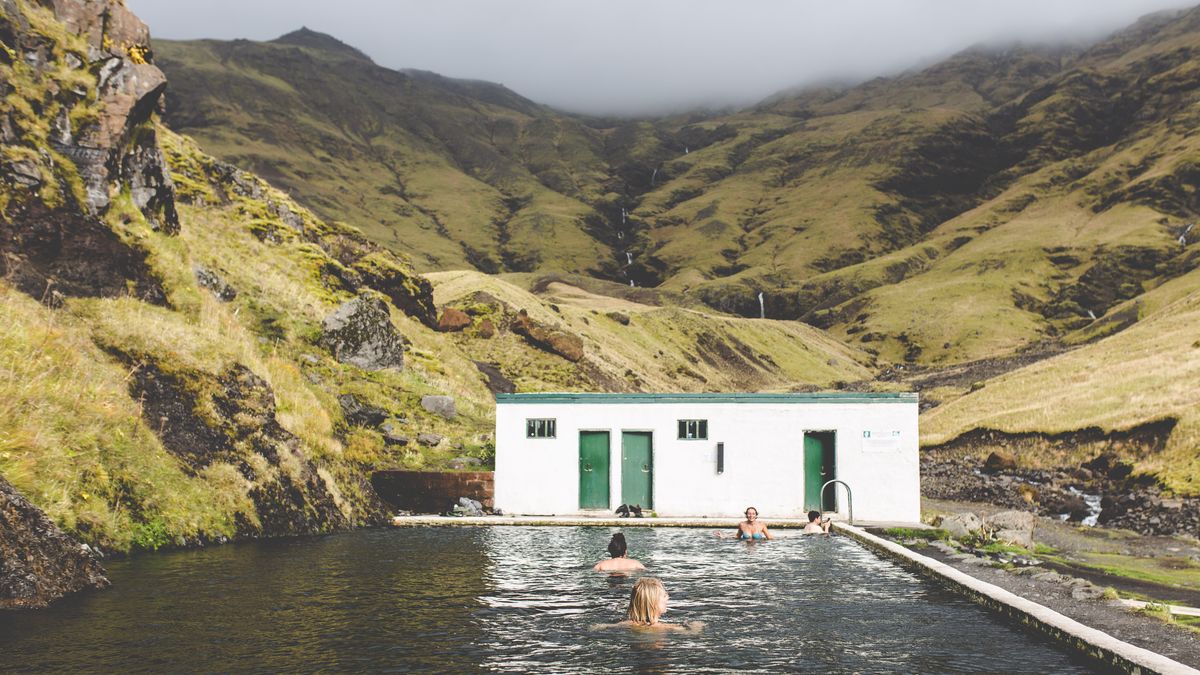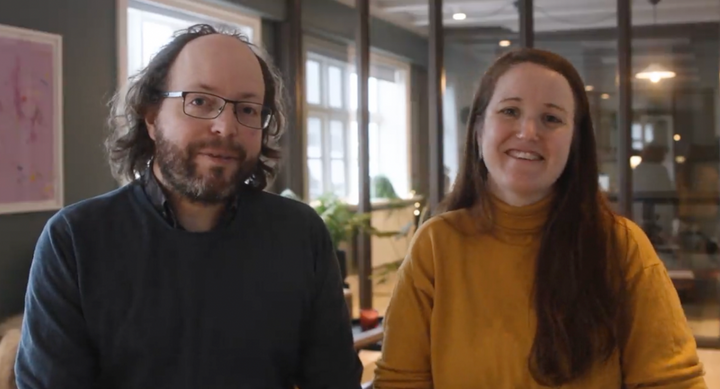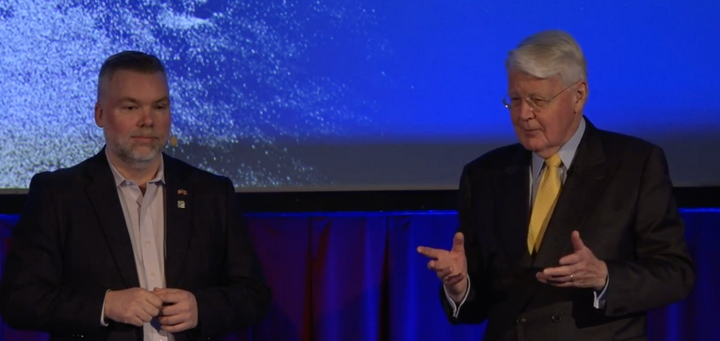The NSA Ventures report: Missing data, depth, and doesn't address the key questions

Three weeks ago, the Ministry for Industry and Innovation (ANR) released a report on the operations and future of NSA Ventures. The report was written by a working group on the matter announced at the fund’s annual meeting last year.
I, and possibly others in the ecosystem, were looking forward to reading the report, which was originally scheduled for late September last year. The funding environment, and ecosystem as a whole, has changed massively in the last several years. (To emphasize, in a recent chat about the ecosystem with a friend who’s been doing this for a long time, he pointed out: “The fact that we’re discussing the ecosystem is a massive step forward from when I was starting out”).
Roughly a year ago at the 2017 annual meeting of NSA Ventures, the Minister for Industry and Innovation, Þórdís Kolbrún, announced a working group to review and propose “well reasoned” changes to the purpose of the fund. The working group was made up of two former board members of the fund, three ministry employees and a strategy professional from a tech company.
Sadly, the overall report was a let down, both in terms of quality of work and lack of critical questioning. Comments, analysis, and discussions in the report suggest that the working group lacked experience with both founding or operating startups and startup investments. No data, outside financial review of NSA, was used to underpin the report. Similarly, no experts or stakeholders were interviewed, and the – in my opinion – big questions around the fund weren’t raised or addressed.
The good
I think it’s important to acknowledge the good points that the report makes, which to me are mainly two points.
First, the group discovered in their work that only looking at NSA Ventures in a vacuum wouldn’t do any good, and therefore suggest a bigger review of the innovation ecosystem in Iceland. It calls for a clear strategy for the Icelandic support system for startups and a unified ecosystem, with clear goals and success metrics, which I applaud. And the Ministry has already, not only because of this report, but it probably helped, announced five project groups that will together create a holistic innovation strategy for the country.
Second, they discuss the need for the Icelandic government to attract high tech companies to the country to enrich the R&D ecosystem in Iceland, using methods such as tax incentives and rebates, as well as easy access for foreign specialists.
Both of these points are in my opinion critical. Sadly, the discussion about NSA Ventures wasn’t this good.
Some background
The future of the fund has been a topic of discussion for a long time. In fact, I wrote one of my longest posts ever on the future of the fund last year, following the minister’s announcement of a working group.
In the last several years there were two big changes in the ecosystem for NSA Ventures. Firstly, in the last five years the number of privately run early stage VC funds went from zero to four. Secondly, the fund – partly due to its evergreen nature – has up until the recent Greenqloud and Valka exits been unable to invest in new companies because it hasn’t had the capital.
This is an important point, because the purpose of the fund has been to finance early stage startup companies, mainly due to a market failure: the lack of access to early stage financing in Iceland.
With private VC funds and an increase in early stage investments from foreign investors, the question should be whether the market failure the fund was founded to address is still there. That question was neither raised, nor answered, in the report.
Now on to the discussion of the report.
Lack of knowledge, data, and expert opinion
Overall, the discussion in the report suggests a lack of knowledge about the sector and understanding of venture capital and startup operations. In addition, use of data to support the report’s findings and discussion of financing landscape developments in the last five years is nonexistent.
The only people the group interviewed was the staff of NSA who all started working at the fund last year with no prior experience with venture investing. No data on investments in Iceland or current access to capital is referenced. No other investors, neither Icelandic VC’s, Icelandic angel investors nor foreign investors, or startup founders were interviewed.
I contacted the ministry for comment which replied with the following statement:
“The working group was composed of specialists in the fields that are connected to the operations of NSA Ventures. The ministry concluded that the group had much breadth and knowledge of the operations and operational environment of the fund, and was well equipped to analyse and assess the options available for the future of the fund.”
Furthermore, on the lack of data, analysis and interaction with the VC or startup community, the ministry commented: “The ministry hired management consultant firm Strategía to analyse how the future operations of the fund should be, both in terms of operations, and in terms of allocation of assets.”
To rearticulate my criticism: My point is not that the individuals in the group lack the ability to contribute to this discussion, but more on the overall composition of the group. The group included no investors or people with venture investment backgrounds (aside from former board members of NSA Ventures), no founders or employees of startups, or direct stakeholders in the ecosystem, nor did the group interview any professional investors, analysts, founders er startup employees or other direct stakeholders in the ecosystem (aside from NSA Ventures employees).
The funding environment
The report briefly discusses the funding environment with regards to other funds. This part is partly factually wrong and partly suggests a lack of understanding of the mechanics of VC investing.
One of the statements in the report is that “it is evidence for the need [of early stage financing funds] that three of the four funds [started since 2015] have already invested all of their capital.” (pg. 5)
This is wrong. Frumtak II, Brunnur and Crowberry all still have capital to invest. Frumtak has stopped doing fresh investments, but a big part of the business model behind VC funds is following up on the more successful companies. Brunnur and Crowberry both still have capital available for new investments.
In addition, last year was the most active in early stage investments in Iceland, ever. Which highly suggests that the market failure NSA was created to solve (i.e. lack of access to capital for early stage companies) is not relevant any more.
The report then goes on to discuss private equity funds (pg. 6), in a somewhat confusing chapter that doesn’t make much sense in the context. It acknowledges the Technology Development Fund as an active participant in the early stage funding environment, but never mentions the host of foreign VC funds that have invested in Iceland in the last years or the angel investment community.
Later in the report, the summarisation of the funding environment is depicted as follows:
“With a stronger Research fund and Technology Development Fund the environment for entrepreneurs has changed as access to funding for the first stages of innovation has increased. After the grants, there are however few options in spite of the addition of new funds. NSA is one of those funds, but it hasn’t been able to invest much over the last years, in addition to the limited capital of other funds. Thus, the gap between grants and early stage investments has grown bigger.” (pg. 7)
This analysis is, in my opinion, wrong, and suggests a lack of knowledge about the Icelandic ecosystem.
- First of all, now that we no longer have capital controls, entrepreneurs have much more options in terms of early stage funding than before (which Northstack’s data supports).
- Second, in spite of NSA being strapped for cash and unable to invest, the last three years have been very active in terms of early stage investing, both because of Icelandic VC’s participating, because a much more active angel community in Iceland, and because Icelandic entrepreneurs are fetching foreign seed money.
- Third, the Technology Development Fund has recently started awarding much bigger grants for shorter time periods (eg. 50m or 70m over two years), which borders on being a seed investment. Which means the gap hasn’t grown bigger, but smaller.
Where is the discussion of the real questions?
With all the above being said, my main issue with the report is the complete lack of discussion about the future set up of the fund and fundamental questions about its purpose and contribution to the ecosystem. When our minister Þórdís announced the working group, she said that the group should make “well reasoned suggestions on the future set up of the fund.” The following questions; what I hoped would be discussed and opined on, were nowhere to be found:
- Is the market failure the fund has been focused on fixing still an issue today?
When the working group was started, the minister mentioned that the fund was originally created to counter a market failure in access to early stage capital. Today, we have four private VC funds focused on early stage companies, increased early stage investment activity from foreign investors, and the number of early stage investments has been steadily growing for the last years (last year was the best ever). - Is it the role of the government to compete with private firms, or should it support and accelerate the overall environment?
In today’s environment, we have four VC funds investing in early stage, and one evergreen government backed fund. In the early stage startup market, funds compete – among other things – on the price of money (how much equity the fund gets in exchange for their cash). NSA Ventures is now, for the first time, an active participant in a competitive market, i.e. the government is competing with private firms. The main difference is that – unlike in private VC funds – the investors at NSA Ventures do not have skin in the game (i.e. their own money in the fund, their compensation directly linked to outcomes of the fund, or their job security connected to the performance of the fund) which makes it easier to give discounts. - Why does it seem to be hard for NSA to exit their investments and recycle their capital?
The report correctly states that many of the companies have been in the fund’s portfolio for a long time (the average “lifetime” in the portfolio is nine years with seven companies having been in the portfolio for more than ten years). However, the report doesn’t raise any questions on why. For anyone with knowledge of VC mechanics, a 9 year average portfolio lifetime is very high, especially when you appreciate the fact that most VC funds operate on a 7-10 year horizon. - Should the way NSA Ventures appoints members of the board, which is based on lobbyist and stakeholder institutions, remain the same?
Lastly, the fund’s board, which has a very important say in all investment decisions, is appointed – by law – by lobby groups. That means the board is usually made up of professional lobbyists or board members of lobby groups that often lack experience in technology, software, investing, or business.
The startup ecosystem has come a long way in the last several years. At the same time, politics have become increasingly interested in innovation and the knowledge economy. This leads to a will to make things better, shown through legal acts, committees, and panels discussing meaningful changes for the ecosystem.
While we’ve come a long way, there are still opportunities for it to become better generally, and the government’s participation to be more focused and effective specifically. Especially when it comes to utilising data to drive analysis and decisions, and asking experts to participate in policy making.
Although this report was a letdown, I’m hopeful that the new Innovation Policy Committee’s will be sourced with subject matter experts, both living here and abroad (some of our best people leave the country, but that doesn’t mean we shouldn’t ask them to help).
Because if we’re investing time and money in making the startup ecosystem better, the people and companies of the ecosystem – the reason why we’re trying to make the ecosystem better – should be a part of the discussion.
[Disclaimer: Kiddi recently started working for a company where NSA Ventures is a shareholder]
This post is a part of the Memo, a regular commentary and analysis newsletter by Kiddi, founder of Northstack. You can sign up here.




